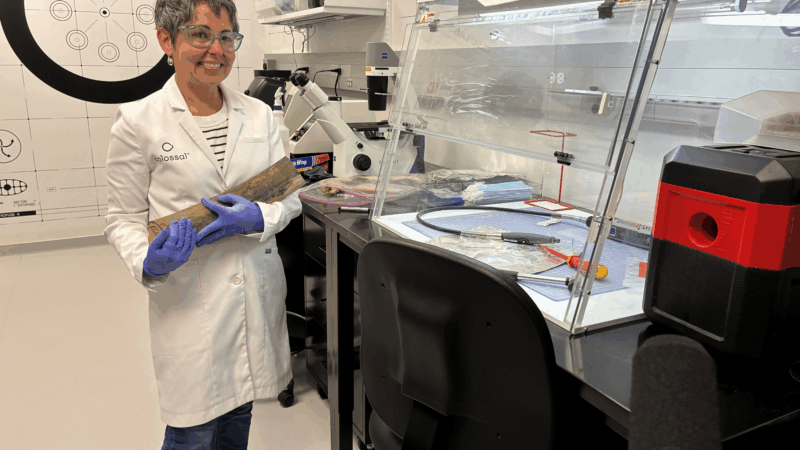A Forgotten Civil Rights Battle — Public Libraries
Think of the flashpoints from the civil rights movement, and buses or lunch counters or voting booths come to mind. One area that’s received less attention is public libraries.
In April 1963, the same spring as the Birmingham Children’s Marches, army veteran and student Shelly Millender walked into the main Birmingham library. Only whites were allowed inside. Millender, who is black, was the spokesman for a group of Miles College students attempting a “read-in” at the downtown branch.
“If I could put my life on the line for the country, certainly I shouldn’t be barred from the library,” says Millender.
Once inside, the group was told they had to go to a colored branch. So they sat down. But instead of a confrontation, the students were left alone.
“I was surprised that I didn’t get the rejection that I anticipated,” says Millender.
The group returned a few days later, but again, no clash with authorities. That’s because the library was segregated by custom and not by law, according to Wayne Wiegand, the author of a book about integrating Southern libraries. He says within days the library board met to figure out what to do.
“The board decided, well, we don’t want the library to be a site for public demonstrations, but let’s just open up the library to all races,” says Wiegand. “And that’s exactly what they did.”
Wiegand says this bit of civil rights history is often forgotten because it was mostly driven by students who needed library. The media tended to follow major civil rights figures who, for the most part, weren’t involved in “read-ins.” Library integrations were peaceful, without bombings and dogs and fire hoses.
Shelly Millender says the library integration was well-earned, but he doesn’t call it a victory.
“I felt like I was entitled to it anyway, so I didn’t think they were doing me any great favor,” says Millender.
He says it was absurd to be banned for his skin color in the first place.
Wayne Wiegand will speak about his book “The Desegregation of Public Libraries in the Jim Crow South: Civil Rights and Local Activism” Tuesday evening at Birmingham’s Central Library.
The Birmingham Public Library is a program sponsor of WBHM. The news and business departments operate separately.
Iranian civilians are now fleeing the relentless bombing for neighboring Turkey
As the U.S. military broadens its strikes in Iran, traumatized Iranians are reaching the border with Turkey.
A split Senate votes against measure to constrain Trump’s authorities in Iran
Democrats in the Senate were facing an uphill climb Wednesday in their push to restrain President Trump's ability to wage war against Iran.
WATCH: How traffic dried up in the Strait of Hormuz since the Iran war began
The effective closure of the Strait of Hormuz is "about as wrong as things could go" for global oil markets. Iran achieved it not with a naval blockade, but with cheap drones.
As Mississippi waits to spend opioid settlement funds, children and families suffer
Mississippi will receive more than $400M to fight the opioid epidemic. So far, officials haven't directed it toward programs that support addiction recovery.
Alabama’s new state climatologist takes the reins
The controversial John Christy is retiring as Alabama’s state climatologist. Lee Ellenburg now assumes the role and is already making a few changes, including declaring that climate change is real and caused by humans.
Colossal Biosciences breeds controversy while trying to revive mammoths
A Texas biotech company is trying to bring mammoths and other extinct creatures back to life. The science is as intriguing as the ethical questions are thorny.






